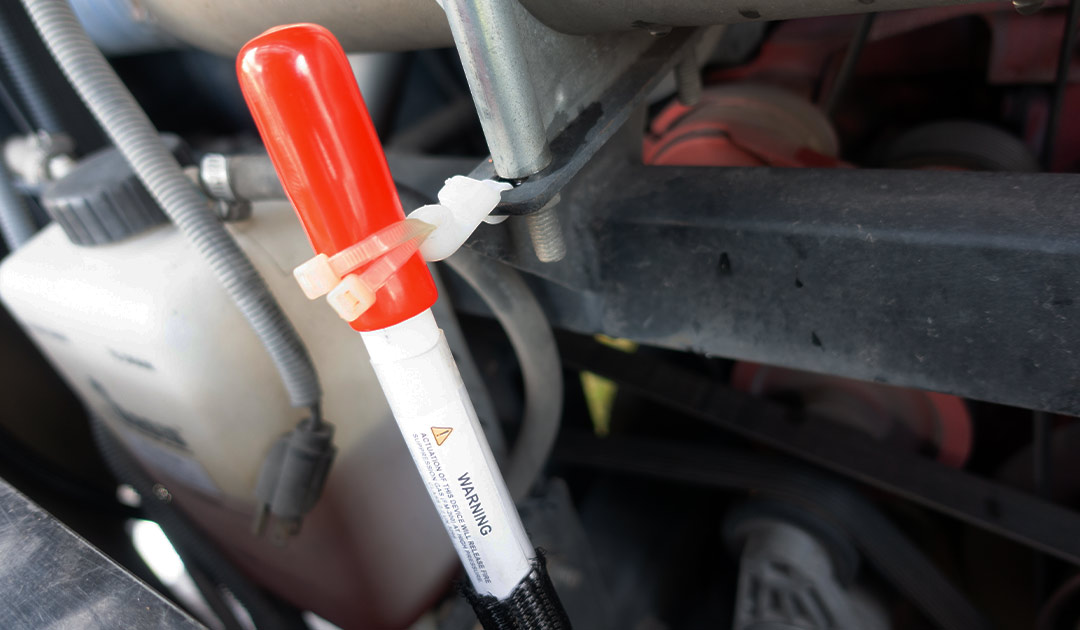Unfortunately, thousands of RV-related fires put the lives of RVers in danger every year. As part of October’s National Fire Safety Month, we’re sharing fire prevention tips and a fire suppression product in an effort to keep RVers safe and sound.
“We’re focused on making RVing as safe and enjoyable as possible, so it’s important for us to address RV fire safety,” says Chuck Lasley, director with NIRVC, who regularly conducts fire safety talks at RV rallies.
Top RV Fire Safety Tips
Inspect and clean interior, exterior and engine compartments. Remove dirt, grime and debris from under the refrigerator, propane area, battery storage compartments, generator compartment, engine compartment, fuel tank, oil reservoir, hydraulic containers, Aqua Hot/Oasis system, etc.
- Pay attention to the electrical – Look for loose or frayed wires and loose connections
- Inspect the undercarriage – Look for dragging, hanging or loose parts
- Install smoke and carbon monoxide detectors and test them regularly – Class A RVs should have at least two (2) detectors
- Have at least three (3) fire extinguishers – including a white fire extinguisher – and check them regularly. Locate extinguishers in the kitchen, bedroom and an outside compartment
“It’s critical to establish and follow a regular inspection and cleaning schedule whenever you’re getting ready to leave for a trip or once you return from a trip,” says Lasley. “In addition, the importance of an annual service appointment can’t be overstated because professionals know what to look for and can catch things owners might have missed.”
RV Fire Suppression Product
Since thousands of RV fires happen each year, NIRVC offers and installs THIA by Proteng, a patent-pending, advanced fire suppression system. In the event of a fire, the THIA devices quickly and automatically disperse FM-200, an extinguishing agent that covers the heat source and can prevent, suppress, and extinguish fires.
THIA by Proteng systems are customized to each RV and consist of multiple self-contained devices that wind through specific areas of the RV that can be prone to fire. There’s no better protection for you and your RV.
Learn more about THIA by Proteng and how to avoid RV fire disasters here.

